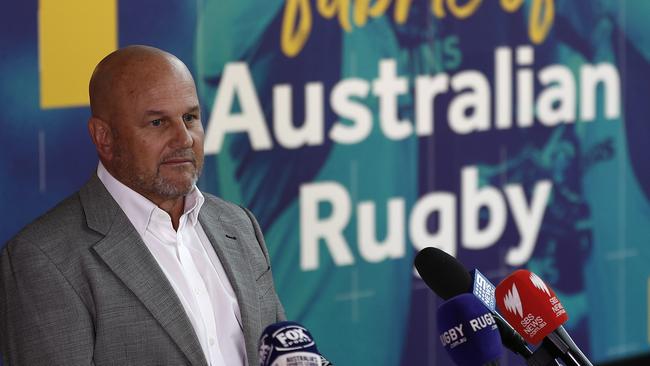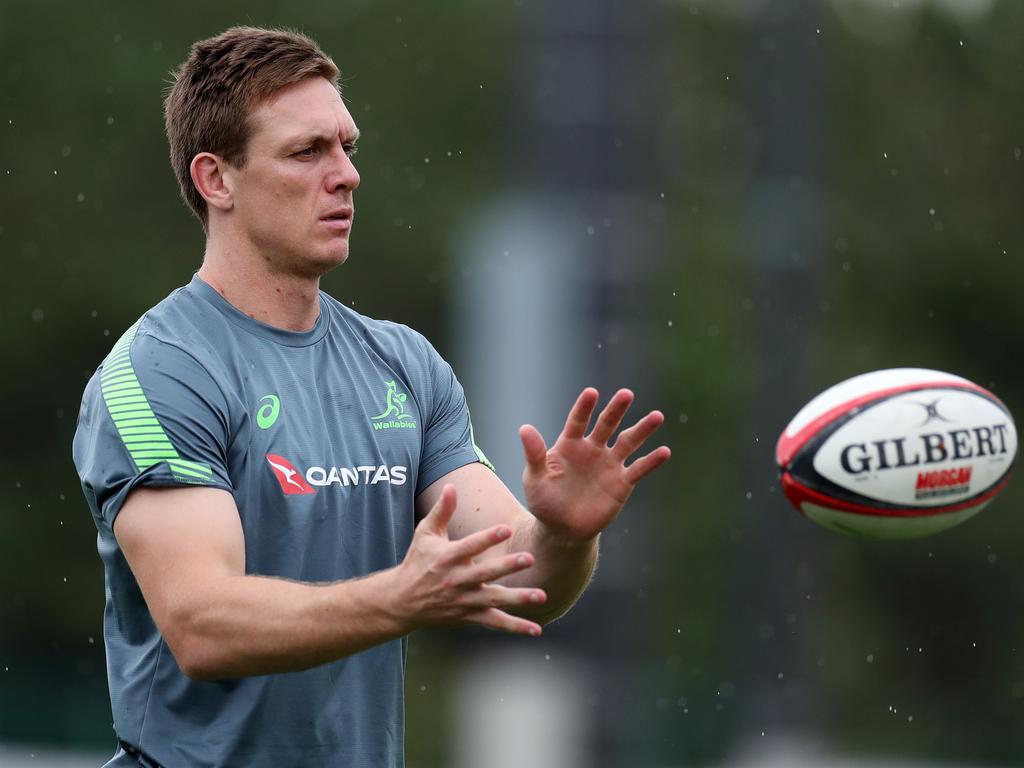Rugby Australia closes in on deal with New Zealand for 2021
Rugby Australia chairman Hamish McLennan says Rob Clarke can stay in the job until the game’s survival is ensured.

Rugby Australia chairman Hamish McLennan insists there is no “pact signed in blood” with his interim chief executive Rob Clarke but he openly acknowledges the two of them will continue working together until all the fundamentals the game needs to survive have been put in place.
The most important “fundamental” is a viable 2021 competition model and indications are that, together, McLennan and Clarke appear to have convinced New Zealand to back down from its earlier demand that Australia confine itself to between two and four franchises in a trans-Tasman series.
Behind the scenes, there are indications that New Zealand recognised its conditions placed RA in the dreadful position of having to cut one or more of its franchises for the second time in just three years, having previously culled the Western Force in 2017.
The Force, kept alive for the past three years by billionaire backer Andrew Forrest, rose to the challenge of putting together a competitive team in the Super Rugby AU competition that was organised once the pandemic had struck. McLennan recognised it would have been grossly unfair for Australian rugby to call on the Perth club in a crisis but then ditch it to meet Kiwi demands.
So RA dug in on a “five franchises or nothing” stance and all indications are the Kiwis will reluctantly agree with Australia’s request for a 10-team trans-Tasman competition. If they do, it will be a startling and improbable victory for RA and one achieved from arguably the worst predicament Australian rugby has ever found itself in.
Almost in anticipation of that triumph, there has been increasing speculation that Clarke, who agreed to fill the interim CEO role until Christmas following the resignation of Raelene Castle in late April, might be persuaded to take on the position permanently.
Certainly he has considerable support from within the board and senior management of RA if that is what he wishes, even though the organisation continues to interview candidates for the permanent CEO role.
McLennan told The Australian on Thursday that while he was convinced that Clarke would stand down from the position as he has always indicated, he will remain there until all the loose ends have been tidied away.
“We haven’t signed a pact signed in blood or anything but there is an absolute commitment that we will work together,” McLennan said of his relationship with Clarke.
“The future of the game, without being melodramatic, will be decided in the next three or four months. And we are very comfortable working with each other and we trust each other implicitly. People think I am a bit nonchalant about the CEO search. We will just get to that … yes, we are talking to people and yes, we have appointed a headhunter … but we have to crunch those big issues. I totally trust him and I think he has done a great job.”
It may well be that the more Clarke ticks off “must do” items on the McLennan list — 2021 competition, broadcast deal, private equity (if RA decides to go that way), constitutional reform and federal government funding for the 2027 Rugby World Cup bid — the more it could affect the sort of chief executive RA actually needs.
If a trans-Tasman competition is put in place for next season — and in a COVID-19 world, nothing is ever locked in — it may be that RA has a reduced need for a pure sporting administrator and more a requirement for a CEO at home in the commercial world.
Meanwhile, as likely as a trans-Tasman competition now appears, contingency talks are continuing with the Japanese Rugby Football Union about the Sunwolves being resurrected should another COVID-19 outbreak force Australia to again go it alone next year with a domestic competition.
“We have spoken to the Japanese,” McLennan said. “We still have the Pacifika option. And I think the most important thing is to lock down a competition structure with New Zealand. But if there is an aberration because of COVID, then we need a back-up.”
The Sunwolves are being considered as the sixth team in the Super Rugby AU 2.0 if it becomes necessary, along with the Brumbies, Reds, Waratahs, Rebels and Force.






To join the conversation, please log in. Don't have an account? Register
Join the conversation, you are commenting as Logout